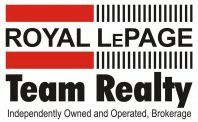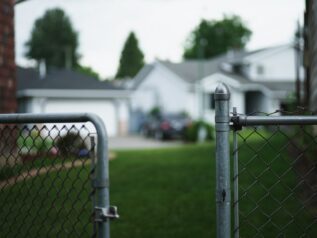
Ottawa Citizen, Stephen Moranis, Postmedia News 08.15.2016
It’s the most common hazard that home buyers overlook: disagreements between homeowners that can turn entire neighbourhoods into war zones. These can happen anywhere, of course; but they’re especially common in tonier, wealthier communities, where people are more inclined to lawyer up, and where small contrarian disputes can escalate quickly.
These conflicts end up becoming embarrassing, upsetting and expensive, occasionally leading some residents to consider selling and moving on. So much for that friendly block party.
It’s a shame. The neighbourhood you once thought was charming and peaceful becomes the one where your neighbour plays loud music all the time, their dog barks constantly, and their high-powered leaf blower becomes the final straw for you and your family.
But how could you have known all this before you moved in?
It is advisable to meet your neighbours and familiarize yourself with the neighbourhood before you purchase, especially if it is a recreational property like a cottage or ski cabin. It is imperative that you get a sense of things before you close any deals. That said, not everything is foreseeable, and any number of neighbour issues are still likely to arise when you’re a homeowner. So here are a few helpful tips in trying to address and resolve these disputes.
1. Communicate with your neighbours before you plan to do significant work to your home such as additions, major renovations or a complete rebuild. It is best to canvass their support first-hand. Too often, neighbours will object to your plans and it can become adversarial. This may result in seeking additional approvals from government regulators and tribunals, which can be timely and costly. Your neighbour’s consent is the best way to proceed with any plans for change. One high-profile neighbour dispute case had the judge ruling that the neighbours needed “a rather stern kindergarten teacher“ and not a court for their goading, shouting, 24/7 surveillance, middle-finger flipping, alleged parking with the intent to annoy, and recording of insults and profanities.
2. Animals and pets can be an irritant to you and your neighbours, especially if your neighbour is keeping chickens, sheep or pigs in their backyard. Local bylaws generally spell out what is allowed. Make sure that you clean up any dog messes and try to keep your cats under control, although it can be hard to stop them marking out their territory on your neighbour’s property. If your animals become too noisy, don’t let them bark or howl all the time but try to attend to them. Many neighbours are scared of animals. You must respect this and keep those noisy and excitable dogs away from them.
3. Join the neighbourhood watch program in your area. This allows you the advantage to get to know people and reassure them that you are a good neighbour. Showing an interest in what is happening in your community allows you to gain their trust as someone who cares about the neighbourhood and is less likely to cause problems.
4. Keep your children under control. Ensure that you know where they are and what they are up to. If they are disturbing your neighbours by being noisy or messy, try to nip it in the bud. Make it clear to your neighbours that you care about what your children are up to, and that they can come to you with any concerns.
5. Keep the noise down, especially if you are planning a party or having people over late. It is wise to let your neighbours know in advance, especially if things are likely to carry on into the wee hours. You might ask them to join you, and then they can’t complain. It is all about being considerate and reasonable and thinking about what would annoy you too.
6. Parking manners are important. Try not to block the access to your neighbour’s property with cars, bicycles, or even the kids’ toys. Do not use other people’s common parking spaces unless you have no choice, as this can lead to bad feelings. Be sure to inform your visitors where they can or cannot park outside your house. And if anything’s unclear, talk about it.
7. Always introduce yourself to new neighbours. When you are the newbie on the street, remember that everyone is curious about you. The best way to reassure them is to introduce yourself. Smile and say hello when you see people around, as the friendly approach is the best way to endear yourself to your neighbours. This ensures that if they need to speak to you about anything, they are more likely to feel comfortable doing so and less likely to go behind your back. Getting to know them will also make the neighbours more likely to look out for you.
8. Boundary and property line disputes are one of the biggest causes of neighbour discord. Many times these matters go to court and they are one of the most popular reasons for neighbour complaints. One of the first things to do is check the property title deed and look at the survey and do this with your neighbour who will be affected. Fences and hedges probably cause the greatest number of arguments, whether it’s existing ones or newly proposed ones. Issues arise over who is responsible for the maintenance and repair of fences. If you are proposing a new fence, be sure to discuss it with the neighbour in advance as to the exact location, style and materials, as well as the possible sharing of costs.
9. Trees and gardens become a source of conflict between neighbours. If a neighbour does not take care of their garden or property and it impacts yours, causing damage or an accident, then your neighbour may be liable for the costs. This includes roots growing under your property or causing an obstacle. Many a drain problem has been caused by underground roots. Local bylaws regulate tree protection and normally inhibit the injury or removal of privately-owned trees that measure at least 30 centimetres in diameter or 1.4 metres tall. Tree branches that hang over your property line may be trimmed by you. If your tree falls on your neighbour’s property, you are not generally responsible unless you caused the damage. Disputes over blocking out light are best to be dealt with sensitively: you are allowed to prune back hedges if they block your light, but you can’t reduce their height.
It is not surprising to learn that the City of Toronto has over 50,000 yearly complaints submitted to them concerning residential property issues between neighbours. The most common ones are noise complaints, fence heights and driveway boundaries. Occasionally, these matters end up at provincial municipal boards and/or in the courts, resulting in bad feelings and lengthy feuds. As a neighbour you should always try and keep the peace. While reasonable people can disagree, you should always try to compromise and talk things through before getting anyone else involved.










 If you’re the parent of a college/university age student, and you haven’t considered it yet, perhaps now is the time you will. As spring is just around the corner, it’s time to think about what investments you can make, and an investment that shouldn’t be overlooked is buying a home. More specifically, buying a home for your college-aged student to live in during school.
If you’re the parent of a college/university age student, and you haven’t considered it yet, perhaps now is the time you will. As spring is just around the corner, it’s time to think about what investments you can make, and an investment that shouldn’t be overlooked is buying a home. More specifically, buying a home for your college-aged student to live in during school. 




 The Winter months in the Capital are arguably some of the most enjoyable for its residents and their families. Christmas has passed, yuletide memories have been made, and we’ve welcomed the New Year with wide opened arms. And with the anticipation of new beginnings in 2018, we take in a deep breath of fresh, brisk air and bundle up to embrace what this year has to offer; including the great outdoors. In fact, with the many winter-filled activities that our City and surrounding areas have to offer this
The Winter months in the Capital are arguably some of the most enjoyable for its residents and their families. Christmas has passed, yuletide memories have been made, and we’ve welcomed the New Year with wide opened arms. And with the anticipation of new beginnings in 2018, we take in a deep breath of fresh, brisk air and bundle up to embrace what this year has to offer; including the great outdoors. In fact, with the many winter-filled activities that our City and surrounding areas have to offer this 









